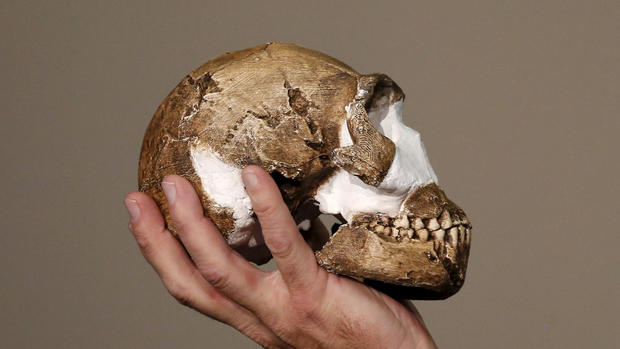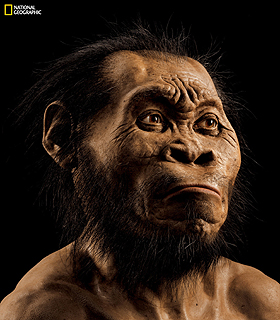Scientists tout newly-discovered human relative
JOHANNESBURG - Scientists announced Thursday the discovery of a new branch on the collective family tree of humanity; an "almost human" creature dubbed Homo naledi.
CBS News correspondent Debora Patta reports the big scientific discovery -- more than 1,500 fossils since 2013 -- took place in an area that has revealed many fossils in the past. Africa continues to be a mine of opportunity for scientists keen to understand our human origins.
It was a treacherous journey to recover the fossils. Women were hired because they were small enough and skinny enough to slip through a narrow warren of caves in the so-called "Cradle of Humankind," a region just outside Johannesburg.
The man who directed the operation was renowned American paleoanthropologist Lee Berger.
"This was outrageously dangerous," Berger said. "Just because no one died, speaks more to our preparation."
Squeezing through 7.5 inch cracks, the team of cavers worked in conditions of 99 percent humidity. It was dark and claustrophobic as they hunched over to do their work, but it took just 21 days to excavate the first area of the rocky terrain.
Berger has named the fossils Homo naledi: Homo indicating the creature's place in human evolution, and naledi being the word for "star" in the local Sotho language.
Berger claims it is a new species of human relative, likely from around the beginning of the evolution of the Homo genus. That would make the creatures somewhere around 2.5 million to 2.8 million years old.
"It's got a tiny head and ape-like body, but arms and legs that are very human-like, something completely unexpected and we found it in incredible abundance," he said. They believe Homo naledi walked upright.
His team has identified the remains of 15 individuals among the fossils -- but here's what's important -- he believes they were deliberately disposing of their dead in the underground chamber.
Homo Naledi is not human, but Berger argues the creatures appear to have been practicing something that is uniquely human.
"My discovery turns science on its head," he told CBS News.
That discovery was fraught with tension, and Berger is not without his critics. Some believe he's been too quick to describe this as a deliberate burial area.
Fellow paleoanthropologist Bernard Wood, who is familiar with Berger's findings, says in the absence of information on how old the species is, it makes it difficult to reach this conclusion.
"I'm respectful of the material they found and I'm respectful of the efforts they made to recover it, but I'm extremely skeptical about the interpretation of them," Wood told CBS News.
But Berger is convinced his team has done more than enough to prove their theory, and that this is an achievement worth celebrating.
He's unapologetic about his theories. Berger insists he and his team are not saying they are right -- this is science, after all, and merely a hypothesis -- but until proven otherwise they are sticking to their conclusions.

